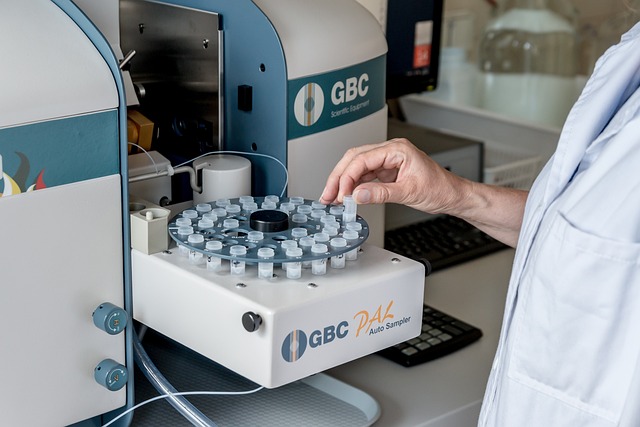Iron deficiency, a common nutritional disorder, occurs when the body lacks enough iron, crucial for oxygen transport via hemoglobin in red blood cells. The UK Standard Thyroid Blood Test includes measuring ferritin, a protein storing and releasing iron as needed. Low ferritin levels signal potential iron deficiency, leading to symptoms like fatigue, weakness, and pale skin. Early detection through this test is vital, especially among women of childbearing age and older adults, enabling prompt treatment to prevent complications and maintain overall health.
“Iron deficiency is a common yet often overlooked health concern, impacting millions globally. To address this, understanding ferritin levels is crucial. Ferritin, a protein that stores iron in the body, plays a vital role in diagnosing and managing iron deficiency anemia. This article explores the significance of ferritin testing, particularly within the context of the UK Standard Thyroid Blood Test. We’ll unravel the causes and symptoms of iron deficiency, dissect the logic behind including ferritin levels in routine checks, interpret normal and low readings, and guide you through diagnosis, treatment, and monitoring.”
- Understanding Iron Deficiency: Causes and Symptoms
- The Role of Ferritin in Iron Storage
- Why UK Standard Thyroid Blood Test Includes Ferritin Level Check
Understanding Iron Deficiency: Causes and Symptoms
Iron deficiency is a common nutritional disorder that occurs when your body doesn’t have enough iron. Iron is an essential mineral responsible for transporting oxygen throughout your body via haemoglobin, a protein in red blood cells. When iron levels are low, it can lead to various symptoms and health issues. Understanding the causes and recognising the signs is crucial for prompt diagnosis and treatment.
In the UK, standard thyroid blood tests often include measurements of ferritin, a protein that stores iron in your body. Low ferritin levels can indicate iron deficiency anaemia. Causes range from blood loss, dietary deficiencies, to conditions like intestinal disorders or chronic inflammation. Symptoms may include fatigue, weakness, pale skin, shortness of breath, dizziness, and irregular heartbeat. Additionally, it can affect overall health, leading to decreased immunity and increased risk of infections.
The Role of Ferritin in Iron Storage
Ferritin plays a pivotal role in iron metabolism, serving as a key protein involved in iron storage within the body. It acts as a reservoir, capturing and holding onto iron for future use. When iron levels are low, ferritin releases stored iron to support various bodily functions, including the production of hemoglobin, which is essential for oxygen transport in red blood cells. This intricate process ensures that iron is effectively managed, preventing deficiency while allowing for efficient distribution throughout the body.
In the context of healthcare screenings, particularly with the UK Standard Thyroid Blood Test, measuring ferritin levels provides valuable insights into a patient’s iron status. Low ferritin values may indicate iron deficiency, highlighting the need for further investigation and potential supplementation. This simple blood test can thus serve as an early warning system, enabling health professionals to address iron-related issues promptly.
Why UK Standard Thyroid Blood Test Includes Ferritin Level Check
In the UK, the standard thyroid blood test often includes a ferritin level check as a crucial component. Ferritin is a protein that stores iron in our bodies and its levels can provide valuable insights into overall iron status. Since iron deficiency is a common health issue, especially among certain demographics like women of childbearing age and older adults, including ferritin testing in the thyroid panel offers a comprehensive assessment. This simple addition helps healthcare professionals identify potential iron deficiencies that might be missed if only looking at other thyroid markers.
The UK Standard Thyroid Blood Test, designed to evaluate thyroid function, now incorporates ferritin measurement as a way to catch early signs of iron deficiency anemia. By doing so, it enables prompt intervention and treatment, which is essential for maintaining overall health and preventing further complications associated with iron deficiency.
Ferritin level testing is an essential component of the UK Standard Thyroid Blood Test, providing valuable insights into iron storage and deficiency. By understanding ferritin’s role in iron management, healthcare professionals can accurately diagnose and address iron-related issues, especially in cases where symptoms may be subtle or non-specific. This simple yet powerful tool enables early detection and effective management of iron deficiency, ensuring optimal health for individuals across the UK.
